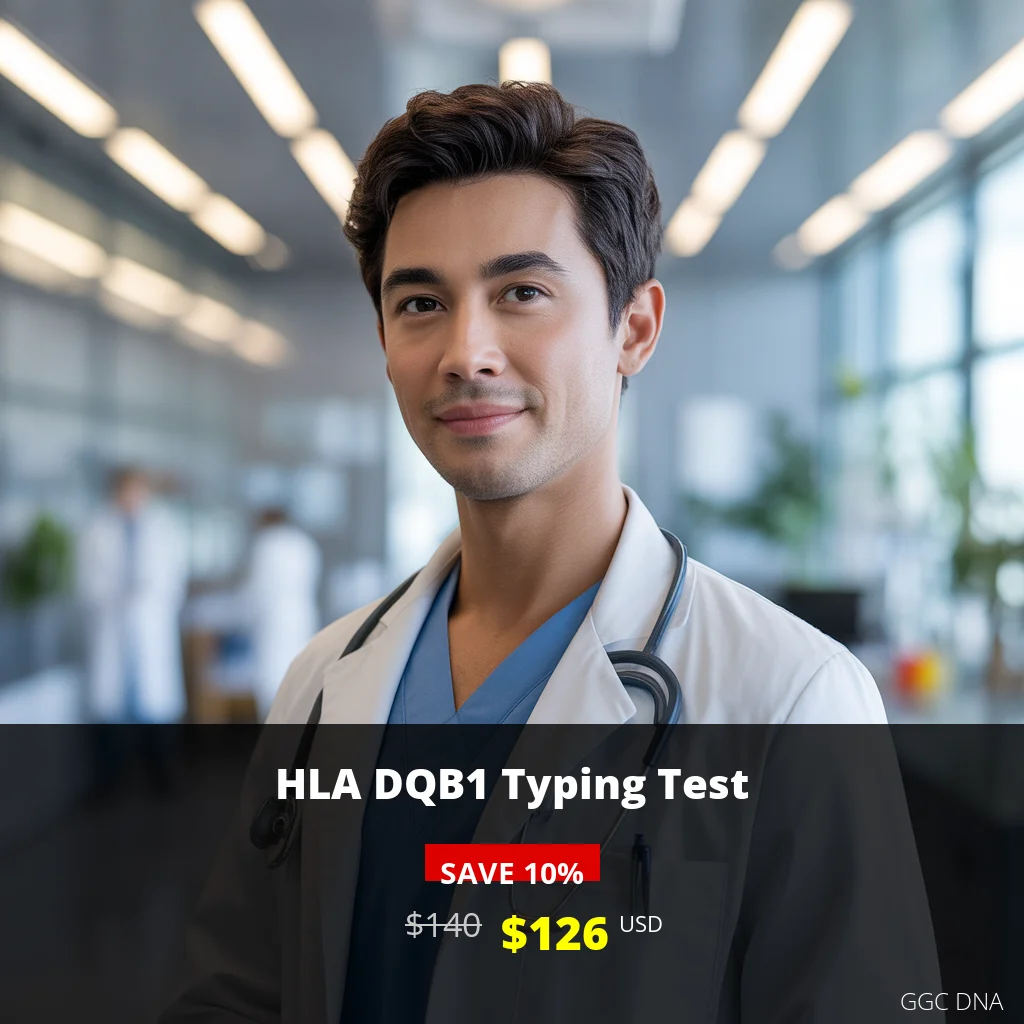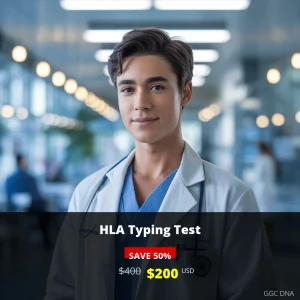HLA DQB1 Typing Test: Comprehensive Transplant Compatibility Analysis
Understanding HLA DQB1 Typing for Successful Transplants
The HLA DQB1 Typing Test represents a cornerstone in modern transplant medicine, providing critical genetic information that determines compatibility between organ donors and recipients. Human Leukocyte Antigens (HLA) are proteins found on the surface of most cells in your body, and the DQB1 gene specifically encodes a key component of the immune system’s recognition mechanism. This sophisticated genetic analysis is essential for minimizing rejection risks and ensuring long-term transplant success.
What Does the HLA DQB1 Test Measure?
The HLA DQB1 Typing Test specifically identifies variations in the HLA-DQB1 gene, which is part of the major histocompatibility complex (MHC) class II. This test detects:
- Specific HLA-DQB1 alleles and genotypes
- Genetic markers that influence immune response
- Compatibility factors between donor and recipient
- Risk assessment for transplant rejection
- Potential for graft-versus-host disease in bone marrow transplants
Who Should Consider HLA DQB1 Testing?
This specialized test is crucial for several patient populations and clinical scenarios:
Transplant Candidates
- Patients awaiting kidney, liver, heart, or lung transplantation
- Bone marrow or stem cell transplant recipients
- Individuals with end-stage organ failure
- Patients with autoimmune conditions requiring transplant evaluation
Potential Organ Donors
- Living related donors for family members
- Deceased donor screening and matching
- Bone marrow registry participants
- Altruistic donors for unrelated transplants
Clinical Indications
- Patients with recurrent transplant rejection episodes
- Individuals with sensitization to multiple HLA antigens
- Cases requiring desensitization protocols
- Pediatric transplant candidates with congenital conditions
Key Benefits of HLA DQB1 Typing
Improved Transplant Outcomes
Accurate HLA DQB1 matching significantly reduces the risk of acute and chronic rejection, leading to better long-term graft survival and patient outcomes.
Personalized Immunosuppression
The test results help transplant teams tailor immunosuppressive medication regimens based on individual genetic risk profiles, minimizing side effects while maintaining efficacy.
Enhanced Donor-Recipient Matching
By identifying compatible HLA profiles, the test facilitates optimal donor selection, particularly important in living donor transplants and bone marrow transplantation.
Risk Assessment and Prevention
Early identification of high-risk HLA mismatches allows for proactive management strategies and pre-transplant interventions to improve success rates.
Understanding Your Test Results
Interpretation Guidelines
Your HLA DQB1 typing results will be presented as specific allele combinations. A perfect match indicates identical HLA profiles between donor and recipient, while mismatches highlight potential compatibility issues that require careful clinical management.
Clinical Implications
- Full Match: Ideal scenario with lowest rejection risk
- Partial Match: Requires tailored immunosuppression protocols
- Mismatch: Higher rejection risk, may need desensitization
- High-Risk Alleles: Specific HLA types associated with increased autoimmune or rejection risks
Next Steps After Testing
Your transplant team will discuss the results in detail, explaining how they impact your specific transplant scenario and what additional testing or preparations might be necessary.
Test Details and Pricing
| Test Information | Details |
|---|---|
| Test Name | HLA DQB1 Typing Test |
| Discount Price | $126 USD |
| Regular Price | $140 USD |
| Turnaround Time | 10-12 Days |
| Sample Type | 4 mL (3 mL min.) whole blood in 1 Lavender Top (EDTA) tube OR 6 mL (3 mL min.) whole blood in 1 Yellow Top (ACD) tube |
| Testing Method | Reverse SSOP – Luminex |
| Required Documentation | Doctor’s prescription on letterhead with 1 photograph each of recipient and donor duly stamped AND Consent form for HLA Typing for Solid organ transplant (Form 33) |
Nationwide Testing Availability
We have branches across all major cities in the USA, including New York, Los Angeles, Chicago, Houston, Phoenix, Philadelphia, San Antonio, San Diego, Dallas, San Jose, and many more. Our extensive network ensures convenient access to this critical testing service wherever you are located.
Take the Next Step Toward Successful Transplantation
Don’t leave your transplant success to chance. The HLA DQB1 Typing Test provides the essential genetic information needed for optimal donor matching and personalized transplant care. Our experienced team specializes in transplantation genetics and works closely with nephrologists, hematologists, gastroenterologists, and surgeons to ensure comprehensive care.
Ready to schedule your HLA DQB1 Typing Test? Contact us today at +1(267) 388-9828 to book your appointment or speak with our genetic counseling team. We’re here to support your journey toward successful transplantation and improved quality of life.
Note: This test requires proper medical documentation and should be ordered through your healthcare provider as part of comprehensive transplant evaluation.





